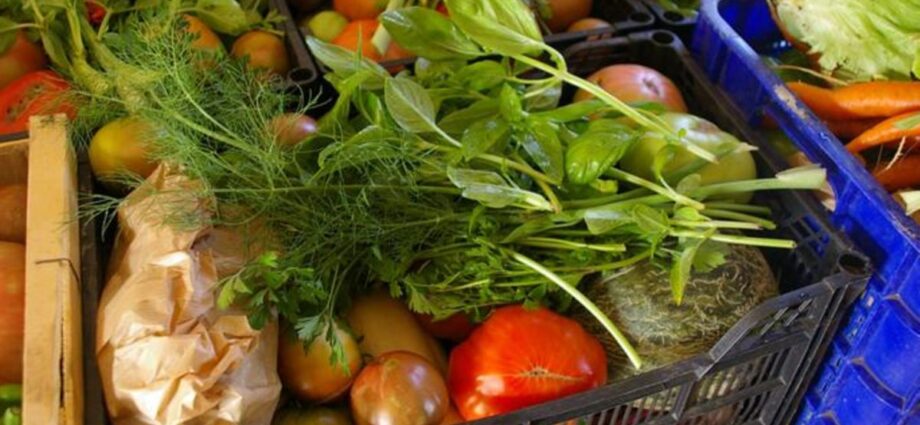Tanzania recorded a population of 61.7 million people being an increase of 16.8 million from 44.9 million recorded in 2012 census.
With growth rate of 3.2 percent per annual, the current population is expected to double by 2044 implying increased demand in social services. Sequentially, global population is projected to increase from the current size of 7 billion to 9.1 billion by 2050 whereby, the three-quarter of this increase will come from Sub Saharan African countries (Tanzania inclusive).
Again this projection implies increase in demand of 3 billion metric tons of cereals for human food and animal feeds by 2050.
As the country aspires to achieve Sustainable Development Goals (especially SDG 2) of ending hunger and all forms of malnutrition by 2030; the relationship between population growth and food shortage raises a wake up call of whether the same attests the relevance of Rev.
Thomas Malthus theory that “production of food will not be able to keep up with growth as human population increases”.
In his theory Malthus suggested that technological advances could increase society’s supply of resources (food inclusive) to improve standard of living in order to realize increased per capita income.
Generally, food security varies between geographical locations, type of crop, and demand of particular crop for various consumption purposes.
However, there is increased demand pressure originating from ongoing population growth, increase in technology and industrial revolution that has increased demand for foods and non- foods crops for various uses including sources of renewable energy such as biofuels.
Domestically, crop production is characterized with low productivity, high dependence on rain fed, use of rudimentary technologies, limited access to finance and lack of agricultural insurance to mention few.
Despite of having young population structure (with concentration of more youth), the underlying sectoral challenges does not provide incentives for youth to participate in agribusiness.
As a function of arable land, labour (human capital) and technology, crop production needs technological and financial incentives to attract more youth to engage in agribusiness to increase productivity within the fixed size of arable land.
Nonetheless, with ongoing global climate change, it is relevant and according to Malthus theory, more advanced and innovative methods are needed in agriculture sector in order to increase food production to sustain continuously growing population. This is to say, use of traditional seeds can no longer provide the expected yield in this era calling for improved seeds that can adapt ongoing climate change; over-cultivated soil need stabilization through application of fertilizers to retain soil nutrients.
Rudimentary farming, harvesting and storage technologies are not appropriate to sustain the increasing food demand at country and global level. Hence forth, tackling these challenges needs a set of policy interventions and state commitments to change the current and future likelihood of food crisis.
Employing about 61 percent of country’s population, agriculture sector apart from provision of food for human and animal consumption, it provides inputs for industrial production and contributes largely to country’s economic growth, thus, our today’s commitment not only will determine future country’s food self-sufficiency but is a way to poverty alleviation contribution of country’s economic growth.
To this end, the seeming disconnects between population growth, food security and economic growth need holistic approach that integrate joint efforts of public and private sector.
In my own opinions the holistic approach should consider (i) Robust investment in macro and micro irrigation technologies and infrastructures for the country to go away from rain fed agriculture and associated climate change hitches, (ii) Set enabling environment for increased access to credit facilities at an affordable rate to facilitate more investment. It is hypothesized that, increasing credit facility will enable graduation from small-scale subsistence farming to medium-scale commercial farming, (iii) Promote large scale farming through public-private partnership by focusing on selected crops that are widely consumed and with national interest for example edible oil seeds and cereals that are used for human and animal consumption; and (iv) Strengthen market system of agriculture produce to ensure fair play by all actors through provision of prices that provides return on investment among producers for poverty alleviation and country’s economic growth.
The Author is a senior researcher at Tanzania Agricultural Development Bank (TADB). The views presented here are that of author and has no connection with the Bank
Share this news
This Year’s Most Read News Stories

ACT-Wazalendo calls for withdrawal of mandatory travel insurance in Zanzibar
Starting October 1, all visitors to Zanzibar will be required to purchase a mandatory travel insurance policy costing $44 at the point of entryContinue Reading

Tanzania Confirms Second Marburg Outbreak After WHO Chief Visit
Dar es Salaam — Tanzania’s President Samia Suluhu Hassan has declared an outbreak of Marburg virus, confirming a single case in the northwestern region of Kagera after a meeting with WHO director-general Tedros Adhanom Ghebreyesus.
The confirmation follows days of speculation about a possible outbreak in the region, after the WHO reported a number of deaths suspected to be linked to the highly infectious disease.
While Tanzania’s Ministry of Health declared last week that all suspected cases had tested negative for Marburg, the WHO called for additional testing at international reference laboratories.
“We never know when an outbreak might occur in a neighbouring nation. So we ensure infection prevention control assessments at every point of care as routine as a morning greeting at our workplaces.”Amelia Clemence, public health researcher
Subsequent laboratory tests conducted at Kagera’s Kabaile Mobile Laboratory and confirmed in Dar es Salaam identified one positive case, while 25 other suspected cases tested negative, the president told a press conference in Dodoma, in the east of the country today (Monday).
“The epicentre has now shifted to Biharamulo district of Kagera,” she told the press conference, distinguishing this outbreak from the previous one centred in Bukoba district.
Tedros said the WHO would release US$3 million from its emergencies contingency fund to support efforts to contain the outbreak.
Health authorities stepped up surveillance and deployed emergency response teams after the WHO raised the alarm about nine suspected cases in the region, including eight deaths.
The suspected cases displayed symptoms consistent with Marburg infection, including headache, high fever, diarrhoea, and haemorrhagic complications, according to the WHO’s alert to member countries on 14 January. The organisation noted a case fatality rate of 89 per cent among the suspected cases.
“We appreciate the swift attention accorded by the WHO,” Hassan said.
She said her administration immediately investigated the WHO’s alert.
“The government took several measures, including the investigation of suspected individuals and the deployment of emergency response teams,” she added.
Cross-border transmission
The emergence of this case in a region that experienced Tanzania’s first-ever Marburg outbreak in March 2023 has raised concerns about cross-border transmission, particularly following Rwanda’s recent outbreak that infected 66 people and killed 15 before being declared over in December 2024.
The situation is particularly critical given Kagera’s position as a transport hub connecting four East African nations.
Amelia Clemence, a public health researcher working in the region, says constant vigilance is required.
“We never know when an outbreak might occur in a neighbouring nation. So we ensure infection prevention control assessments at every point of care as routine as a morning greeting at our workplaces.”
The Kagera region’s ecosystem, home to fruit bats that serve as natural reservoirs for the Marburg virus, adds another layer of complexity to disease surveillance efforts.
The virus, closely related to Ebola, spreads through contact with bodily fluids and can cause severe haemorrhagic fever.
Transparency urged
Elizabeth Sanga, shadow minister of health for Tanzania’s ACT Wazalendo opposition party, says greater transparency would help guide public health measures.

Sign up for free AllAfrica Newsletters
Get the latest in African news delivered straight to your inbox
“This could have helped to guide those who are traveling to the affected region to be more vigilant and prevent the risk of further spread,” she said.
WHO regional director for Africa Matshidiso Moeti says early notification of investigation outcomes is important.
“We stand ready to support the government in its efforts to investigate and ensure that measures are in place for an effective and rapid response,” she said, noting that existing national capacities built from previous health emergencies could be quickly mobilised.
The situation coincides with leadership changes in Tanzania’s Ministry of Health, with both the chief medical officer and permanent secretary being replaced.
This piece was produced by SciDev.Net’s Sub-Saharan Africa English desk.
Source: allafrica.com

Serikali: Sampuli zilizochukuliwa hazijathibisha virusi vya Marburg
Wakati Shirika la Afya Duniani (WHO) likisema watu wanane wamefariki dunia kutokana na ugonjwa unaoshukiwa kuwa wa virusi vya Marburg (MVD) mkoani Kagera, Wizara ya Afya ya Tanzania imesema sampuli zilizochukuliwa hazijathibitisha uwepo wa virusi hivyo.Continue Reading











